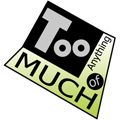
Vitamin C is classified as L-ascorbic acid (ascorbic acid) and is one of the 13 essential vitamins. It’s a water-soluble vitamin that contributes to normal body development.
Since vitamin C is an essential nutrient (meaning your body does not produce or store sufficient quantities of it), it is necessary to have enough of vitamin C in the daily diet to promote health of teeth and gums. Vitamin C assists the body to absorb iron and support healthy connective tissue regeneration and promotes wound healing. It also functions as a natural antioxidant and antihistamine.
Forms of mineral Vitamin C (ascorbates)
Mineral salts of ascorbic acid are almost always preferred as they are less acidic, and therefore, considered “buffered.”. However, consuming each mineral may produce additional health issues when combined with ascorbates. Some of the most common mineral forms of Vitamin C are:
- Sodium ascorbate – 1000 mg of sodium ascorbate contains approximately 111 mg of sodium. Although additional sodium content supposedly does not increase water retention as much as sodium chloride combination, it may trigger kidney pain and formation of oxalate leading to serious kidney problems
- Calcium ascorbate – 1000mg of calcium ascorbate contains approximately 90-110 mg of calcium. When calcium is combined with ascorbates and taken in mega doses regularly, it may lead to osteoporosis
- Potassium ascorbate – 1000 mg of potassium ascorbate contains approximately 175mg of potassium
- Magnesium ascorbate
- Zinc ascorbate
- Molybdenum ascorbate
- Chromium ascorbate
- Manganese ascorbate
Vitamin C toxicity symptoms and dangers of mega-dosage supplementation
- Lose stools (diarrhea)
- Lower back pain (Kidneys pain)
- Acute headache
- Excessive stomach acid production resulting in heartburn
- Nausea and vomiting
- Abdominal cramps and bloating
- Skin rashes
- Death
The mechanism that causes the death from too much vitamin C consumption is not clearly established. It is thought to be more of a mechanical nature rather than chemical.
Too much vitamin C intake may result in the following toxicity manifestations
- Iron poisoning due to significantly increased iron absorption
- Formation of kidney stones
- Suppressed production of progesterone
- Excessive expression of Hexavalent Chromium triggered by vitamin C, which may initiate cancer-causing processes
- Muscle spasms from magnesium imbalance caused by too much vitamin C retention
- Accumulation of oxalate which subsequently absorbed into the bloodstream via the gut,which binds with calcium and forms sharp calcium-oxalate crystals. These crystals then retained in the body tissues causing damage and/or exacerbating pain and inflammation. Excess oxalate also leads to oxidative damage and the depletion of glutathione.
At the time of overdose, the water soluble Vitamin C is rapidly excreted from the body via to urine. Vitamin C toxicity is considered relatively low comparing to other nutritional substances.
A new study by British researchers at the University of Leicester states that a daily 500mg synthetic supplementation of vitamin C can have a pro-oxidant effect on the genetically composed DNA. The pro-oxidant process may promote genetic damage of the DNA by free radicals.
It is worth noting and the naturally occurring vitamin C in foods does not produce the harmful effects as its synthetic counterpart does when too much vitamin C is taken via synthetic supplements. The best way to balance your intake of vitamin C is via healthy diet plan.
Is is also worth noting that many so called “healthy diets” may cause nutritional deficiencies, including vitamin C deficiency, since they change the rate with which the vitamins are utilized by the body.
